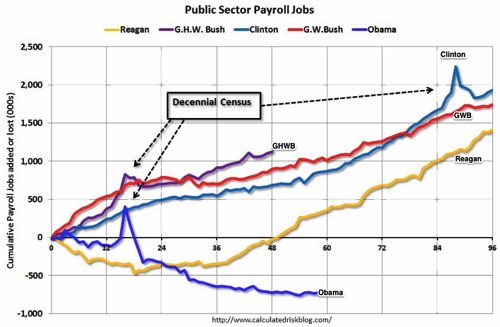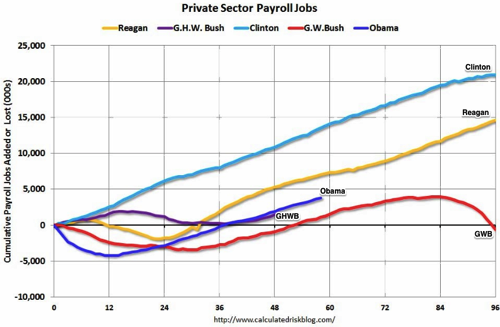Affordable Care Act health-care reform implementation. Federal Reserve appointments. Dodd-Frank financial regulation implementation. Environmental regulation–how and whether to control carbon dioxide emissions as a garden-variety pollutant under the Clean Air Act, and whether the Keystone pipeline is an environment minus (further entrenching the carbon economy) or an environmental plus (shifting us away from dirty coal). Finally–five years late, no thanks to Tim Geithner and Barack Obama’s appointments non-policies–using the Federal Housing Finance Administration to do what needs to be done to rebalance housing finance in the aftermath of a housing sector-based financial crisis, and with any luck use FHFA and the GSEs it regulates as tools of macroeconomic policy to ease the load on the Federal Reserve. (See Joe Gagnon.) Judiciary appointments. Turning promises that addressing inequality is job #1 into realities. And foreign policy–lots of foreign policy: climate, economic, democracy, and security.
There is an awful lot of policy to be done over the next three years. Virtually none of it, however, involves Senators preening for the cameras, or is of interest to non-quantitative reporters wanting to write “opinions of shape of earth differ” stories. Even following what will be going on will require digging down into federal administrative mechanisms, and reaching out to what is going on outside the Beltway…
Continue reading “Ezra Klein Says; ‘It is ridiculous to declare Obama’s presidency ‘finished’”” →
Kevin Drum: Vermont Is Kicking Everyone’s A– at Signing Up People for Obamacare:



